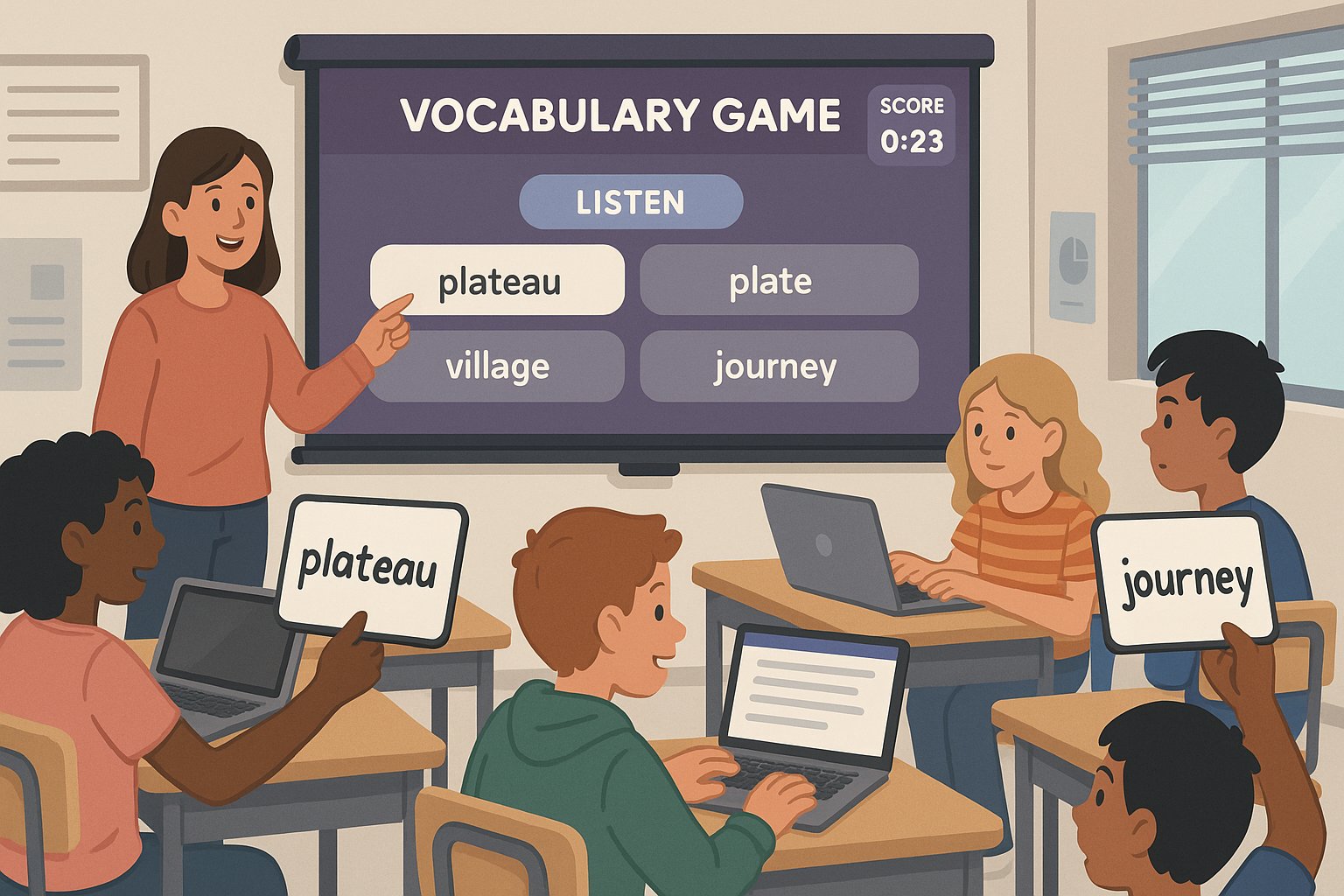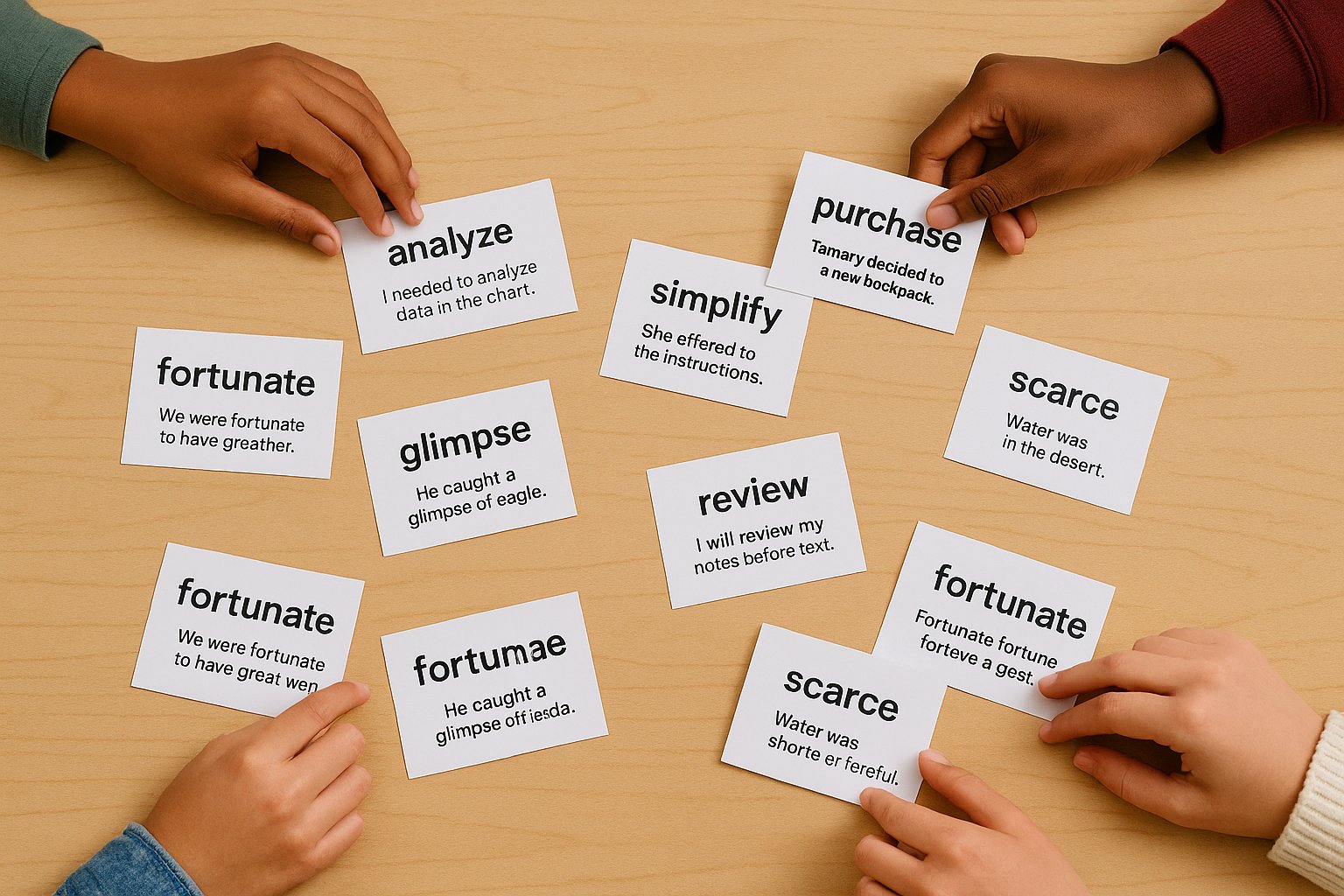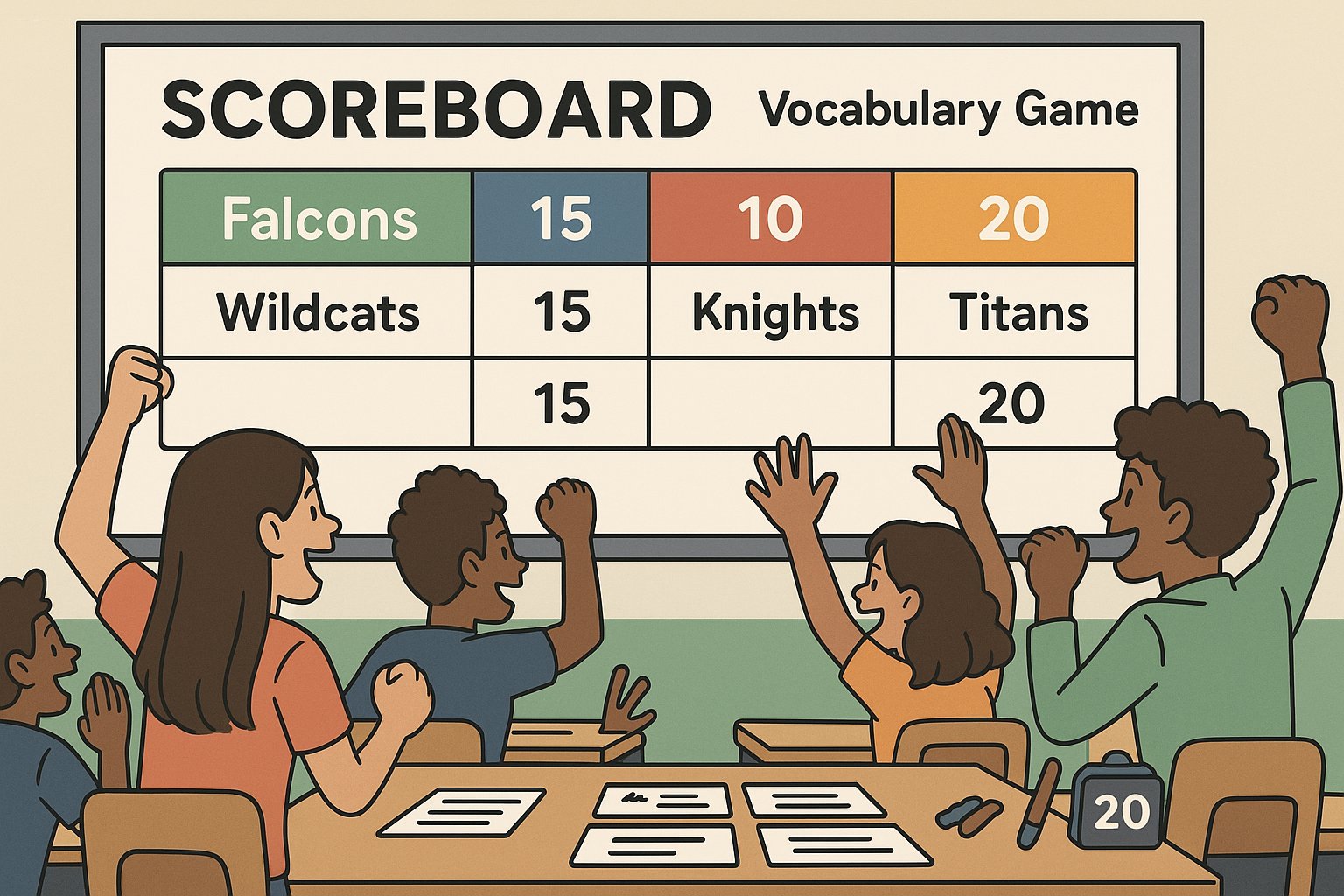Vocabulary · Games
Middle School Vocabulary Games That Actually Work (And Aren’t Babyish)

What Makes a Vocabulary Game “Middle School Approved”?
If a vocab game feels like it belongs in 2nd grade, middle schoolers will check out immediately. Successful games for grades 6–8 have three things in common:
- They feel grown-up. The design, topics, and humor match their world, not elementary school.
- They use real words. Focus on Tier 2 academic vocabulary, not just random animal and food words.
- They demand thinking. Students apply words in context, not just match them to simple picture cards.
Here are several middle-school-ready vocabulary games that respect students’ intelligence while still feeling fun.
Game 1: “Which Sentence Wins?”
Choose 4–6 target words for the week. Students work in pairs to write the best sentence using each word. The catch: the sentence has to show the meaning through context, not define it outright.
For each word, project 3–4 student sentences (anonymous). As a class, vote on which sentence “wins” and talk about why the context is strong. This reinforces both meaning and usage.
How to Keep It Engaging
- Let students use school-appropriate pop culture, sports, or social scenarios.
- Rotate which pairs get featured so more students feel the spotlight.
- Turn it into a weekly routine: “Sentence Showdown Friday.”
Game 2: Vocabulary “Cap or Facts?”
For each target word, give students three statements: one true sentence that uses the word correctly, one sentence that misuses the word, and one that is “cap” (ridiculous but funny).
Students label each sentence as Correct, Incorrect, or Cap and then “fix” the incorrect one. This helps them notice subtle misuses of words.
Example
Word: reluctant
- Correct: “Jordan was reluctant to volunteer, even though he knew the answer.”
- Incorrect: “The reluctant sunshine filled the room with bright light.”
- Cap: “I was so reluctant to eat cake that I ate the whole thing.”

Game 3: Connect-the-Word
Write 8–10 vocabulary words around the edges of the board. In the center, draw a “web” with empty spaces. Students draw lines connecting words that relate to one another and write quick notes explaining the relationship:
- Synonyms or near-synonyms
- Opposites
- Words that might appear in the same situation or topic
They quickly see which words are “loners” and which live in the same neighborhood.
Game 4: Vocabulary Playlist
For older middle schoolers, have them build a “playlist” where each song is connected to a vocabulary word. They must:
- Name the song and artist (school-appropriate versions).
- Explain how the lyrics or mood match the word’s meaning.
For example, a student might match resilient with a song about bouncing back after a setback. You don’t have to play the songs; the thinking is what matters.
Game 5: “Two Truths and a Lie” Vocabulary Edition
Students choose one vocabulary word and write three sentences about it:
- One sentence uses the word correctly.
- One sentence uses it almost correctly, but slightly off.
- One sentence misuses the word completely.
Partners guess which sentence is the true one. They must explain why the other two are off. This forces them to think deeply about nuance.

Game 6: Digital Battle Modes
Digital games let students practice vocab rapidly while keeping the social energy high. You might use:
- ABZ-style games where students match words to context sentences under time pressure.
- Battle modes where students race to use words correctly in short responses.
- Team-based quizzes where correct answers move a character or avatar across the screen.
The key is making sure that every item uses real sentences, not just isolated word-definition pairs.
Turning “Vocab Lists” into Word Power
Vocabulary games are not fluff when they demand clear thinking and real usage. When students argue about which sentence is best, or which answer is “cap,” they are doing the kind of deep processing that actually builds word knowledge.
Try adding one of these games to your weekly routine, or pairing your vocabulary list with an ABZ Learning game that uses those words in context. Over time, vocabulary shifts from “more words to memorize” into “better tools to say exactly what I mean.”